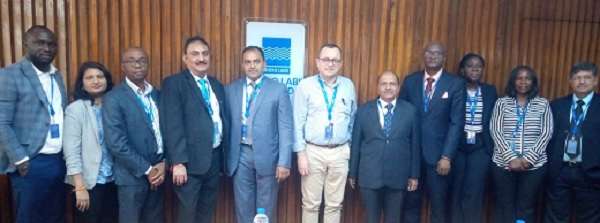Place your adverts here on InfoDig @ low rates; banner ads, sponsored links and guest articles etc. Contact us
Nigeria has the potential to generate N4.59 trillion annually by taxing just 4,690 of its wealthiest individuals, according to Auwal Rafisanjani, the executive director of the Civil Society Legislative Advocacy Centre (CISLAC).
He made this known during the launch of the Fair Tax Monitor Index and Wealth Taxation Report in Abuja on Tuesday, emphasising the urgent need for tax reforms to address the nation’s socioeconomic challenges.
Rafisanjani called for a paradigm shift in Nigeria’s tax system, advocating for a full exemption of individuals earning below N840,000 per year from Personal Income Tax (PIT) and an increase in the top tax rate to at least 40% for the wealthiest one percent of citizens.
He noted that Nigeria is currently grappling with significant financing shortfalls, with over half of its population living in poverty and an annual deficit of more than $10 billion needed to achieve Sustainable Development Goals (SDGs).
Read also: FG proposes 25% tax rate on wealthy Nigerians earning N100 million monthly
A report commissioned by the Federal Inland Revenue Service (FIRS) revealed that 99% of Nigeria’s super-rich evade taxes, resulting in a mere 0.035% compliance rate.
Of the over 115,000 High Net-Worth Individuals (HNWIs) in the country, only 40 have been identified as compliant taxpayers.
This situation represents not only a significant revenue loss but also exacerbates inequality, as the wealthiest 1% hold five times more wealth than the poorest 50%.
Rafisanjani criticised the current Capital Gains Tax (CGT) rate of 10%, which is considerably lower than rates in countries such as South Africa (18-21.6%) and Ghana (15-35%).
He urged the government to revamp tax policies, including addressing regressive taxation, revitalizing the property tax system, and enhancing the enforcement of progressive taxes.
He proposed the establishment of a dedicated HNWI Unit within the FIRS to effectively track and audit high-net-worth individuals and suggested implementing a comprehensive Net Wealth Tax on fortunes exceeding $5 million.
Additionally, he advocated for a reform of the CGT, exemptions for basic goods under Value Added Tax (VAT), and the introduction of a progressive Personal Income Tax structure.
Rafisanjani noted that urgent reforms are necessary to create a fairer and more transparent tax system in Nigeria.
“The time for change is now,” he asserted, emphasizing that the wealthiest citizens must contribute their fair share to support essential services and alleviate the financial burden on the most vulnerable members of society.

 1 hour ago
27
1 hour ago
27













 English (US) ·
English (US) ·